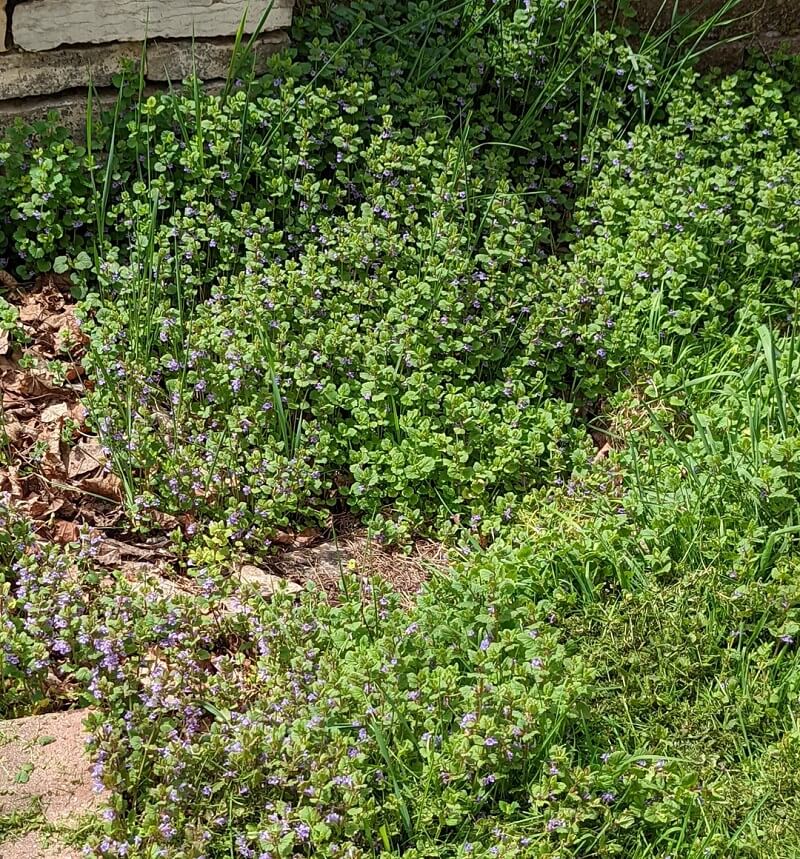A Reddit user's question about an unfamiliar plant in their lawn sparked a lively discussion about eco-friendly landscaping alternatives.
The post in the r/NoLawns community, which features a photo of a clover-like plant spreading into a corner of a native garden, garnered attention from lawn enthusiasts and environmental advocates alike.

"Will I regret letting this creep into my lawn? Looks mint-y," the original poster asked, sharing an image of the mysterious greenery.
Fellow Redditors identified the plant as creeping charlie, also known by various other names, including ground ivy and field balm.
While creeping charlie is often considered invasive, this online exchange highlights a growing interest in lawn alternatives that can benefit both homeowners and the environment.
Replacing traditional grass lawns with native plants, clover, or other low-maintenance options can lead to significant advantages.
One of the most appealing benefits of lawn alternatives is the potential for saving both money and time. Native plant lawns and ground covers typically require less frequent mowing, reducing fuel costs and maintenance efforts.
Beyond financial savings, alternative lawns create healthier ecosystems for pollinators such as bees and butterflies. These insects play a crucial role in protecting our food supply.
Homeowners interested in reaping these benefits have several options to consider.
Native plants adapted to local climates require minimal care once established. Clover lawns offer a lush, green appearance while fixing nitrogen in the soil. Buffalo grass provides a drought-tolerant alternative for drier regions. And xeriscaping with rocks and drought-resistant plants can create striking, low-water landscapes.
Even partially replacing a traditional lawn can lead to benefits. By starting small, homeowners can experiment with different plants and find what works best for their environments and preferences.
Redditors chimed in to share their experiences with creeping charlie.
"Half my back yard is creeping charlie, and it is really hard to control and keep out of garden sections," one commenter shared.
Another offered a more optimistic view, saying, "Bright side about it being in the garden, it's super easy to pull."
A third user added practical advice: "Just pull it out, it grows in long strands and doesn't have deep roots so pulling it is not a lot of work."
As more people explore alternatives to traditional lawns, online communities such as r/NoLawns provide valuable spaces for sharing experiences and advice. By embracing these eco-friendly options, homeowners can create beautiful, low-maintenance landscapes that benefit their wallets and the planet.
Join our free newsletter for easy tips to save more, waste less, and help yourself while helping the planet.









